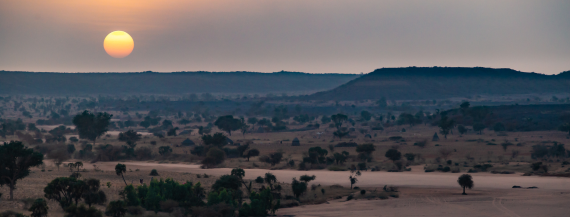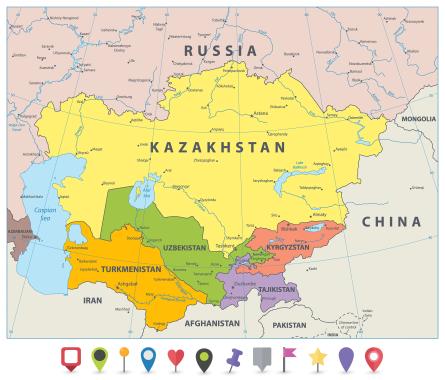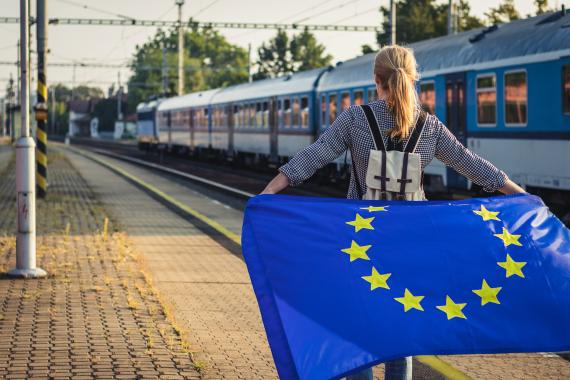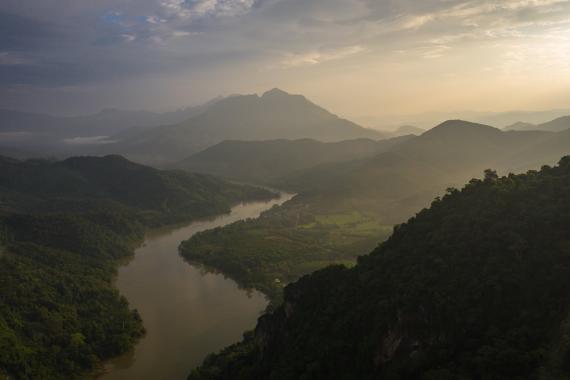Veranstaltungen - Multinationaler Entwicklungsdialog Brüssel
Derzeit sind keine Veranstaltungen geplant.
Seminar
EVENT REPORT - THE INDO-PACIFIC: A NEW GLOBAL CENTRE OF GRAVITY?
Saturday, 10 June 2023 - EU Parliament, Strasbourg - Authors: Clara Burkhardt, Jonas Nitschke.
On June 10, 2023, the European Parliament in ASEAN and the Konrad Adenauer Stiftung’s Multinational Development Policy Dialogue (MDPD) together with the Directorate-General for Parliamentary Democracy Partnerships organized a panel discussion at the European Parliament focusing on strengthened EU-Indo-Pacific relations.
Diskussion
Demystifying Russian security engagement in the Sahel: Can Europe fill the emerging security vacuum?
28 February 2023 - European Parliament - Follow the link to register.
Diskussion
The Youth Action Plan in EU external action – a new era of global youth empowerment?
By Theresa Rohrhirsch and Janne Leino
On the 12th of December the Konrad-Adenauer-Stiftung Multinational Development Policy Dialogue (KAS MDPD) organised discussion round titled "The Youth Action Plan in EU external action – a new era of global youth empowerment?". Invited speakers from the European External Action Service (EEAS), the Youth Sounding Board (YSB) of the European Commission Directorate General for International Partnerships and the African Union (AU) Diaspora Youth Initiative discussed how the new "Youth Action Plan in EU external action" (YAP) published by the EU Commission could strengthen global youth engagement.
Diskussion
European knowledge pool - is it leaking?
Event Report - Monday, 26 September 2022 - Brussels, Belgium
Event report - Authors: Theresa Rohrhirsch, Janne Leino.
Event
Young Voices: European Engagement and the EU's Image
Policy Workshop
15. July 2022 - (CEST) - KAS MDPD is hosting a closed-door policy workshop with youth representatives and EU decision makers on the future of EU's youth engagement. Take a look at the program and apply to participate!
Event
"China’s and Russia’s Security Engagement in Central Asia - Suggestions for a European Response"
Authors: Constantin Knuhr, Janne Leino (KAS MDPD Brussels).
In cooperation with the European Neighbourhood Council (ENC), KAS MDPD organized a closed-door, Chatham House rules background talk “China´s and Russia's Security Engagement in Central Asia – Suggestions for a European Response”. The event was hosted by the EPP Group Coordinator for Foreign Affairs MEP Michael Gahler (DE) and brought together around 35 experts from the institutions of the European Union, NATO, academia, and the think tank sector.
Expertengespräch
Global Business Perspectives on the EU Directive on Corporate Sustainability Due Diligence
Business Dialogue for Sustainability
In February 2022, the European Commission published its proposal for a Directive on Corporate Sustainability Due Diligence (CSDDD). The directive aims to prescribe large companies and smaller companies in high-risk sectors to carry out human rights and environmental due diligence in their business operations, as well as in their subsidiaries and in global value chains.
Event
China's security cooperation in Latin America and the Caribbean: Implications for Europe
Brussels, Belgium - Wednesday, 11 May 2022
On the 11th of May 2022 the Multinational Development Policy Dialogue (MDPD) Brussels of the Konrad-Adenauer-Foundation in cooperation with the European People´s Party (EPP) and MEP Javier Zarzalejos organized a closed-door Chatham House rules Expert Exchange on the topic of “China´s security cooperation in Latin America and the Caribbean: Implications for Europe”. The event brought together around 25 experts, policy makers and academics working on the topic to openly discuss the challenges the European Union faces through China´s rising influence in the region.
Online-Seminar
Perspectives on Southeast Asia
China's Security and Defence Cooperation in Southeast Asia and possible German and European responses
On January 18th, 2022, the KAS Department Asia and the Pacific (Berlin) and KAS Multinational Development Policy Dialogue (KAS MDPD) in Brussels co-hosted a closed-door online event dedicated to discuss China´s security and defence cooperation in Southeast Asia (SEA) as well as the new German governments policy towards the region.
Expertengespräch
Advancing the accountability of the judiciary and justice for women in Indonesia
What role for the EU?
Access to effective and fair justice systems is essential for addressing the root causes of inequality and for contributing to shared prosperity. Democracy, sustainable development, peace and stability are all dependent on the accountability, transparency and credibility of justice systems and the access to justice for all citizens. Yet, women often face various difficulties and barriers in accessing justice. It is therefore crucial to make justice systems more gender-responsive by enhancing women’s admittance to justice and improving the quality of legal representation provided to women.








